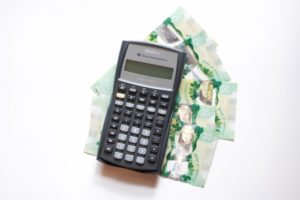The NDP government recently unveiled the 2018 budget, spearheaded by finance minister Carole James. The news was met with both cheers and jeers, as the Dippers laid out a plan to help ease the housing crisis and make living more affordable in British Columbia.
Most newsworthy for students might be the $450-million earmarked for new student housing. Post-secondary institutions are now able to borrow from the government to fund student housing development; they were unable to borrow for that purpose in the past. In James’ statement, she mentioned that students are struggling when it comes to finding housing. However, the need for student housing goes beyond that struggle.

The focus of the budget was undoubtedly housing affordability and availability for all. And getting students into designated campus housing would help ease the tight supply in many markets, particularly here in Victoria.
The NDP didn’t pull any punches: when flat-out asked if this budget was meant to bring down housing prices, James replied, “Yes. I hope we don’t see the kind of escalation you are seeing now in the market.”
The loudest rabble comes from the announcement of a speculation tax on real estate. Applying to domestic and foreign purchasers, it targets property owners who live outside the province and do not occupy their properties or make them available as rentals. For now, it affects the areas of Metro Vancouver, the Capital Regional District (CRD), the Regional District of Nanaimo, and Kelowna and West Kelowna. It will be an annual tax at 0.5 percent of the assessed value, jumping to 2 percent in 2019.
For these areas, properties not used for a principal residence or qualifying as a long-term rental property—for which the definition is unclear—will be dinged. BC residents who have a vacation home within the province will receive a tax credit to help offset the cost.
Another pin aimed at the housing bubble is the extension of the foreign buyers tax, up from 15 percent to 20 percent. This was strictly a Vancouver levy, but it will now affect the Fraser Valley, the Central Okanagan, the CRD, and Nanaimo.
Medical Service Plan premiums will be eliminated by 2020, after being halved this year; replacing the lost revenue will be a payroll tax. Businesses will pick up this tab—those with payrolls over $1.5 million will pay 1.95 percent; those with payrolls between $500,000 and $1.5 million will pay reduced rates; those with payrolls under $500,000 will be exempt.
Many are praising the efforts to bring housing prices back down to earth, while others see a government purposefully driving down their golden goose. With rising interest rates and new stress tests already testing real-estate markets, analysts wonder if these factors could compound and drive housing prices down further than necessary.
Those who bought at the height of the frenzy could see their mortgages sit higher than the market value of their home. Not a great spot to be in, but neither is struggling to find a home in the first place.
